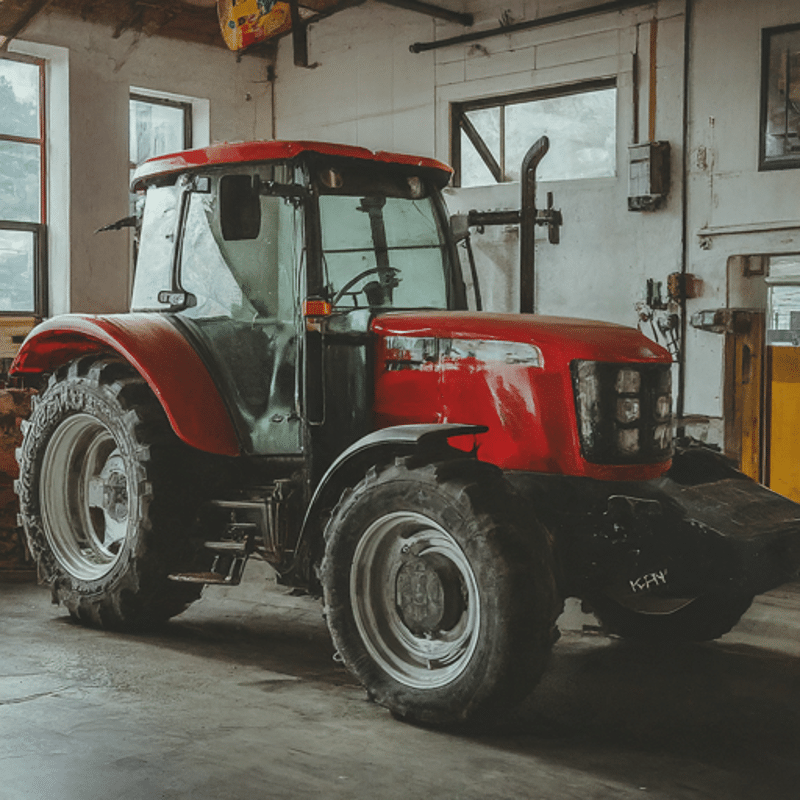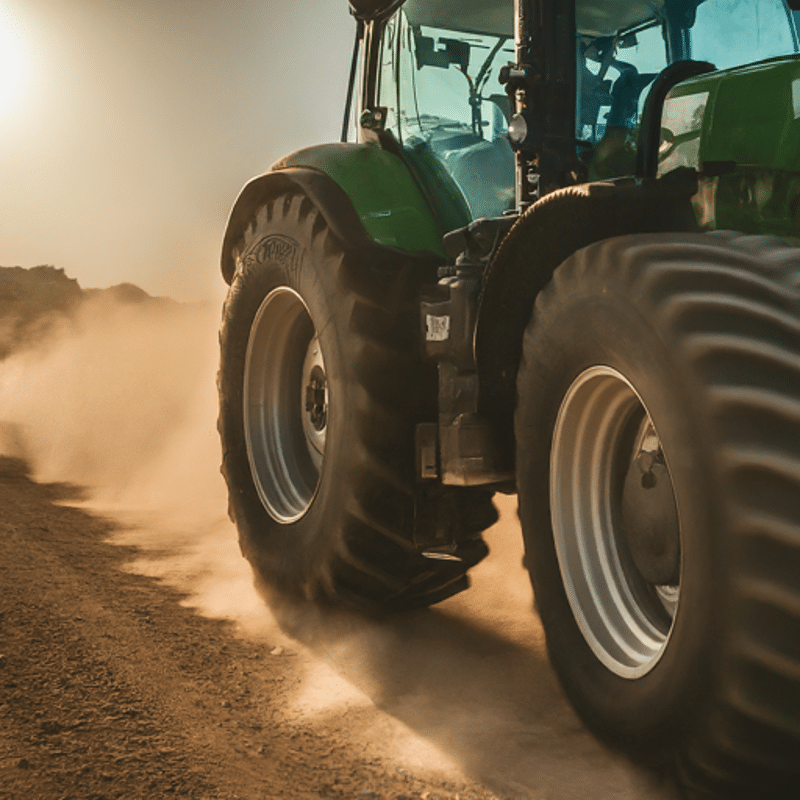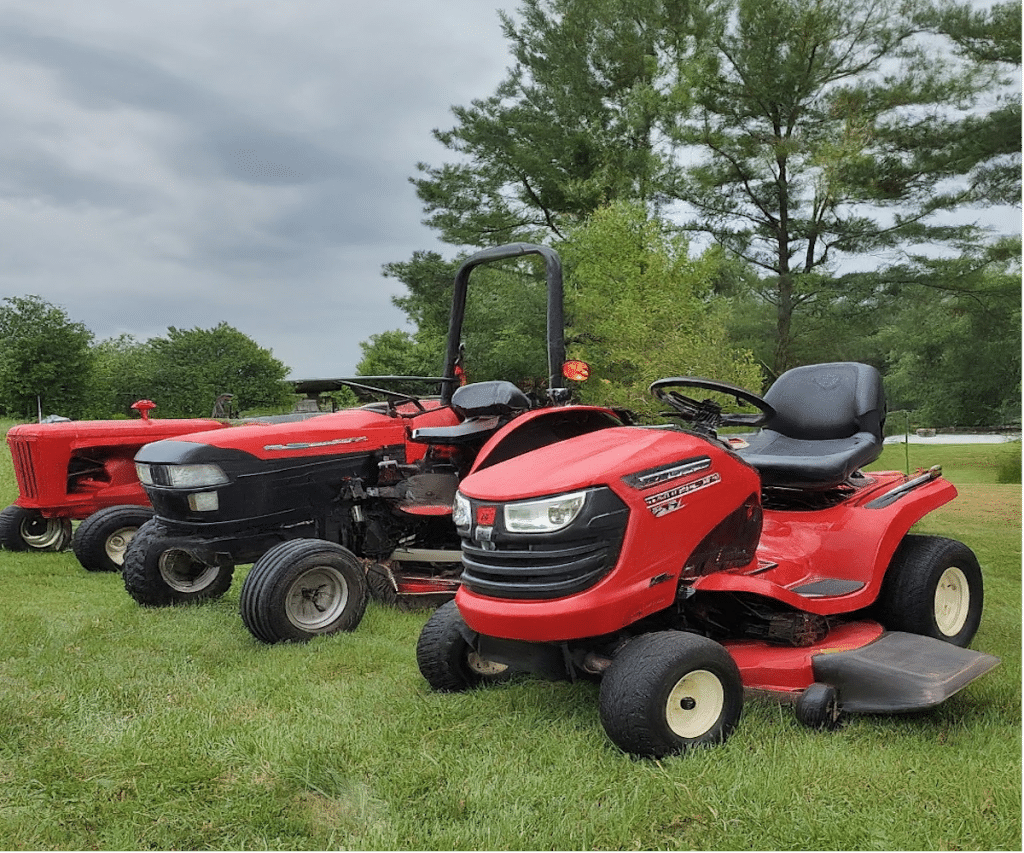If you have property to manage, chances are you’ve considered the benefits of owning a tractor. Tractors come in a bewildering array of sizes and capabilities, making the selection process daunting. Choosing the wrong tractor can lead to frustration and wasted money, whether underpowered for your needs or massively oversized for your tasks.
We aim to simplify the selection process. We’ll delve into the factors to consider when choosing a tractor, explore popular brands, and highlight the importance of finding the machine that perfectly suits your needs and property.
Types of Tractors
Here’s a quick breakdown of the most common types of tractors:
Sub-compact Tractors:
- Horsepower: Typically under 25 HP
- Uses: Great for homeowners with smaller properties (usually under 3 acres) and lighter tasks like mowing, basic gardening, and light landscaping
- Price Range: Generally the most affordable, starting around $8,000 – $15,000
Compact Utility Tractors:
- Horsepower: 25 – 50 HP
- Uses: Compact tractors handle properties of a few acres up to smaller farms. Versatile for mowing, tilling, snow removal, light loader work, and more.
- Price Range: Expect to pay around $15,000 to $35,000+, depending on features and attachments.
Utility Tractors:
- Horsepower: 50 – 100+ HP
- Uses: Larger frames and increased power for properties and farms needing robust tilling, heavy loader work, and handling larger implements.
- Price Range: $25,000 – $70,000+
Farm Tractors:
- Horsepower: 100+ HP (some exceeding 400+ HP)
- Uses: ‘Big boys’ intended for serious farming. Large-scale tillage, crop management, pulling heavy equipment.
- Price Range: Can start around $50,000 and quickly reach the hundreds of thousands for high-powered models.
Categories can overlap, and prices fluctuate based on brand, features, and whether you’re buying new or used.
Key Considerations When Buying a Tractor

Selecting the right tractor goes beyond just the type. Consider these essential factors:
Property Size and Tasks:
- Be honest about your land size and your use of the tractor. More significant properties and demanding tasks need bigger, more powerful machines. Consider what you’ll do now and what you might want to do in the future.
Horsepower:
- Measured in HP, horsepower determines how much work the tractor can handle. Match the HP to your tasks and intended implements – always err on the side of slightly more power than you think you’ll need.
Transmission Types:
- Hydrostatic: Simpler operation (like an automatic car). Great for beginners or frequent directional changes.
- Gear-driven: This can offer more power transfer and is often less expensive but requires manual gear shifting.
- Shuttle Shift: A middle ground with easy forward/reverse changes but still some gear selection.
2WD vs. 4WD:
- 4WD (Four-Wheel Drive) is generally preferred for its superior traction in slippery conditions or on slopes. 2WD may suffice for consistently dry, flat properties.
Implements and Attachments:
- Think about the tools you’ll need (loader, backhoe, tiller, etc.). Your tractor must have the hydraulic power to handle them and the right connections for compatibility.
New vs. Used:
- Used tractors can offer significant savings. Carefully inspect them for wear and tear, or consider a certified pre-owned option. New tractors offer warranties and the latest technology.
Popular Tractor Brands
The world of tractor manufacturers is vast, but a few brands consistently stand out due to their reputation, reliability, and feature sets. Here’s a glimpse at some of the most popular:
John Deere:
- A classic American brand known for its iconic green and yellow machines. John Deere offers a wide range of tractors, from sub-compacts to massive agricultural models.
Kubota:
- This Japanese manufacturer has a loyal following, particularly in the compact and utility tractor market. Kubota tractors are famed for their durability and user-friendliness.
Massey Ferguson:
- With a rich history, Massey Ferguson produces a variety of tractors known for their rugged construction and dependable performance.
New Holland:
- A globally recognized brand, offering tractors for various needs, from compact models to heavy-duty farm equipment.
Kioti:
- A South Korean brand gaining popularity, Kioti offers excellent value, combining features and affordability.
Case IH:
- Case IH focuses on utility and farm tractors, known for their powerful engines and advanced technology.
This is just a small selection! Many other reputable brands exist (LS Tractor, Mahindra, Yanmar, etc.). Research is your best friend. Consider regional dealer availability, online reviews, and features when choosing your brand.
The Importance of Test-Driving

Just like you wouldn’t buy a car without a test drive, the same holds true for tractors. It’s the best way to get a true feel for how a tractor handles and make sure it’s the right fit for you. Here’s why taking a test drive is crucial:
Comfort and Ergonomics:
- You’ll be spending hours in the seat of your tractor. Test-driving lets you assess seat comfort, whether controls are intuitively placed, and if the overall layout feels natural to you.
Maneuverability:
- Put the tractor through its paces. Feel how it turns, how responsive the steering is, and how it handles any slopes or terrain you may encounter on your property.
Power and Performance:
- Experience the horsepower firsthand. Does it feel adequate for your intended tasks? Try it with any implements you plan on using regularly to gauge its capability.
Visibility:
- Good sightlines are essential for safety and efficient work. Evaluate how the tractor’s design allows you to see around the machine and any blind spots.
Finding Test Drives: Most reputable dealerships will encourage you to test drive models you’re considering. If possible, try a few different brands and configurations to get a basis for comparison.
Conclusion
Choosing the right tractor is an investment that can enhance your work on your property for years to come. By understanding the different types of tractors, weighing your specific needs, and knowing popular brands, you’re well on your way to making an informed decision. Remember, there’s no substitute for a proper test drive to ensure the tractor you choose feels like the right extension of yourself.
Don’t be afraid to visit local dealerships and speak with knowledgeable staff. They can guide you through the process and help you find the perfect tractor to turn those property chores into satisfying accomplishments.

Paul Cannon is the founder of CannonCreek.com and an avid countryside enthusiast who transitioned from city life to the tranquility of rural living. He passionately works on his small-scale hobby farm, embodying the philosophy of making the most of the land he is blessed with. Paul’s journey from urban to country life and his efforts to cultivate a piece of heaven on earth inspire his work and the community he has built through Cannon Creek.
